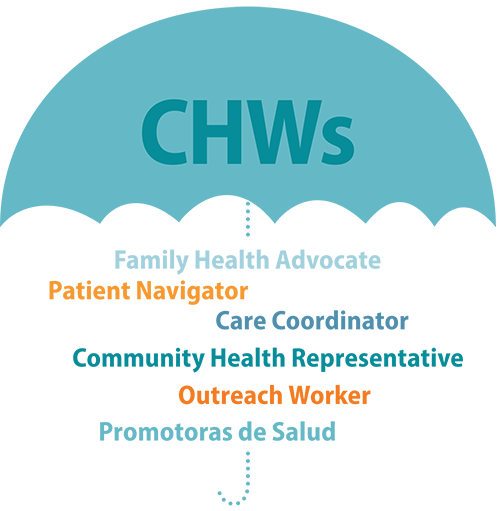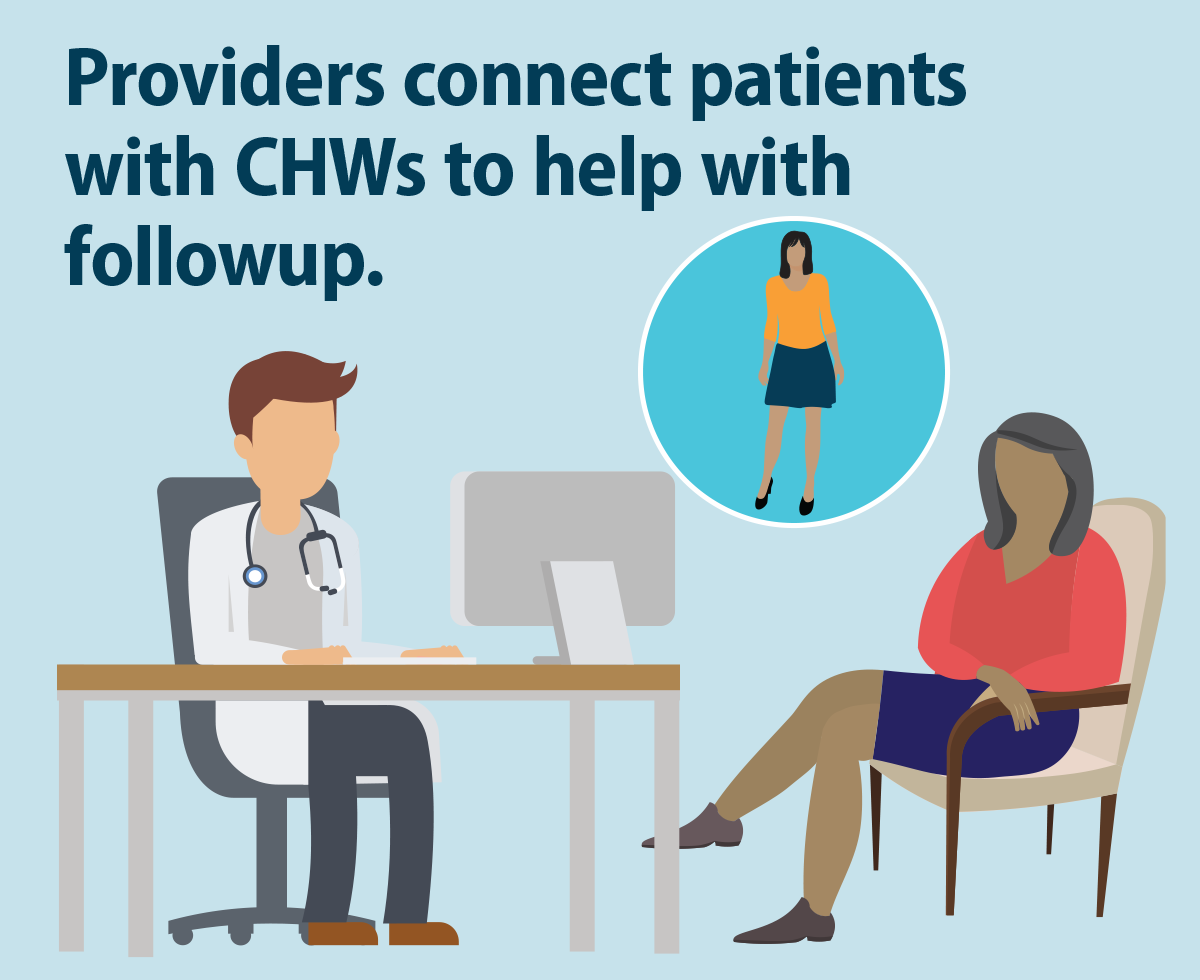CHWs Make the Difference We Need

Many positions fall under the CHW umbrella. They all focus on the client’s whole life, which includes their behavioral and physical health and their Social Determinants Of Health (SDOH). CHWs do not provide clinical interventions or treatment. Instead, they are the connection and intermediary between the patient and those clinical or community services that they need to be healthy and thriving. CHWs are trained to advocate for health equity, and support populations whose struggles are influenced by factors such as poverty, language barriers, lack of education, ethnicity, sex, sexual identity, age, disability, socioeconomic status, or geographic location. CHWs have a keen understanding of the social and environmental influences in a client’s life and how those factors can impact and prevent them from reaching their health-related goals.
Social Determinants Of Health are conditions in the places where people live, learn, work, and play that affect a wide range of health and quality-of-life-risks and outcomes.
These SDOH include factors such as Economic Stability, Neighborhood and Physical Environment, Education, Food, Community, Safety and Social Context, and the Healthcare System.
Coalition Purpose and Priorities
The NH CHW Coalition promotes Community Health Workers as vital members of the health care and social service teams through advocacy and education.
The purpose of the NH CHW Coalition is to bring together Community Health Workers, along with supportive health professionals, community leaders, employers, and other stakeholders to promote the role and value of CHWs in improving health outcomes.
The NH CHW Coalition identities their priorities by seeking input from the valued members. A Strategic Plan is written by the Steering Committee with input from membership and this helps guide the work of the Coalition. The current Strategic Plan goals are to:
- Increase employer and other stakeholder investments in CHWs through education on the roles and values of CHWs.
- Provide education and professional development opportunities to CHWs throughout the state of NH.
- Increase CHW engagement in NH CHW Coalition activities and initiatives.
The NH CHW Coalition aims to be the convener of CHWs across New Hampshire, collaborating with organizations and individuals in NH who support the CHW workforce. Our goal is to give space for CHW voices to be heard and for other CHWs to be leaders in the advancement of the CHW workforce at the state, regional, and national levels.





